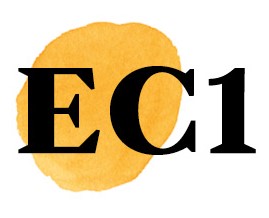Islington Council has launched a new three-year programme focusing on young Black men and their mental health
By Julia Gregory, Local Democracy Reporter

“You build up respect between a barber and a client. It’s about loyalty, respect and trust,” said barber Mitch Fly who is trained to spot signs that young Black customers might need support with their mental-wellbeing.
Mr Fly said barbers are trusted to listen to people’s concerns and respect their privacy and can see clients through the bad and good times that life throws at us.
He is one of the five Islington barbers who have trained to signpost support as part of a £1.6m scheme to improve the mental health and well-being of young Black men and boost their opportunities.
Mr Fly from the Fade Fabric Barbers at Dalston Kingsland said barbers are used to listening to their clients and are unshockable. “Barbers shops are a safe space to be.
“We cut hair so much we hear so much. There’s nothing we’ve not heard.”
He added: “We can spot certain things early.”
His fellow mental health ambassador Ivelaw King who is based at KRL in Kingsland Road on the borders of Islington and Hackney said: “We see children who become adults and go through high school, college, university. You see a lad growing up and you are helping them. It’s a great feeling.”
He explained that barbers build up relationships with their clients and can help support them and steer youngsters at risk of going off the rails away from problems.
“You have to be talking to them about the right direction.”
The duo are from two of the five barbers shops trained as mental health ambassadors who will suggest places where clients can get help with their well-being.
The barbers are part of a three-year programme focussing on young Black men and their mental health to improve their well-being and opportunities and tackle inequality.
The scheme launched by Islington council is funded with £1.6 million from the government’s violence reduction unit and NHS North Central London Integrated Care Board’s Inequalities Fund.
It aims to overcome the systemic discrimination, racism and stigma which can blight the lives of young Black men and boys.
The move comes as Black men are 17 times as likely to be disgnosed with a serious mental illness and four times as likely to be sectioned as their white counterparts.
Nationally Black boys are four times more likely to be excluded from school and Islington council wants to tackle these inequalities.
Black boys at Beacon High, Central Foundation and Islington Arts and Media School will also get support through the becoming a man programme. A counsellor will be based full time at each of the schools to run five sessions a week helping them with their long term mental well-being, as well as individual sessions with pupils.
Young people aged 16 to 25 who are at risk of poor health, violence and exclusion from school will get help from staff at the “elevate innovation hub”.
There’s also training for people working in the police, GPs, social care and schools to challenge inequalities and racism.
Nineteen-year-old actor Richard Sigobodhla appeared in a film the council made about the pressures facing young Black men said the stigma surrounding mental health can be a barrier to ask for help.
“It’s not wanting to give power to the people you are talking to.”
He said the pandemic has changed things with more people opening up about mental health and social media can also play a part erradicating the fear that it shows weakness to talk about problems.
“Barbers shops getting involved helps too,” he said.
Councillor Jason Jackson who came up with the idea of getting barbers involved which spearheaded the programme said: “I want to see a change in my community.”
He said: “Talking about young Black men and mental health is not something that i do not understand myself. I get it. It’s a struggle.”
He said it was important to tackle inequalities and work towards “the day where we do not have to have any specific programmes so there is full equality across mental health and understanding the diverse community that there is.”
Cllr Jackson said some young Black men “feel lost” and struggle with issues around identity which can be “embedded internally in a community that does not want to talk about mental health.”
He added: “A key part of what we want is talking, so young people feel comfortable about talking.”
He hopes it will give reassure young men that there are safe spaces to talk about issues bothering them such as anxiety or imposter syndrome which plagues many young people rather than bottling things up.
“This programme is about letting young Black boys understand there is an outlet out there.”









